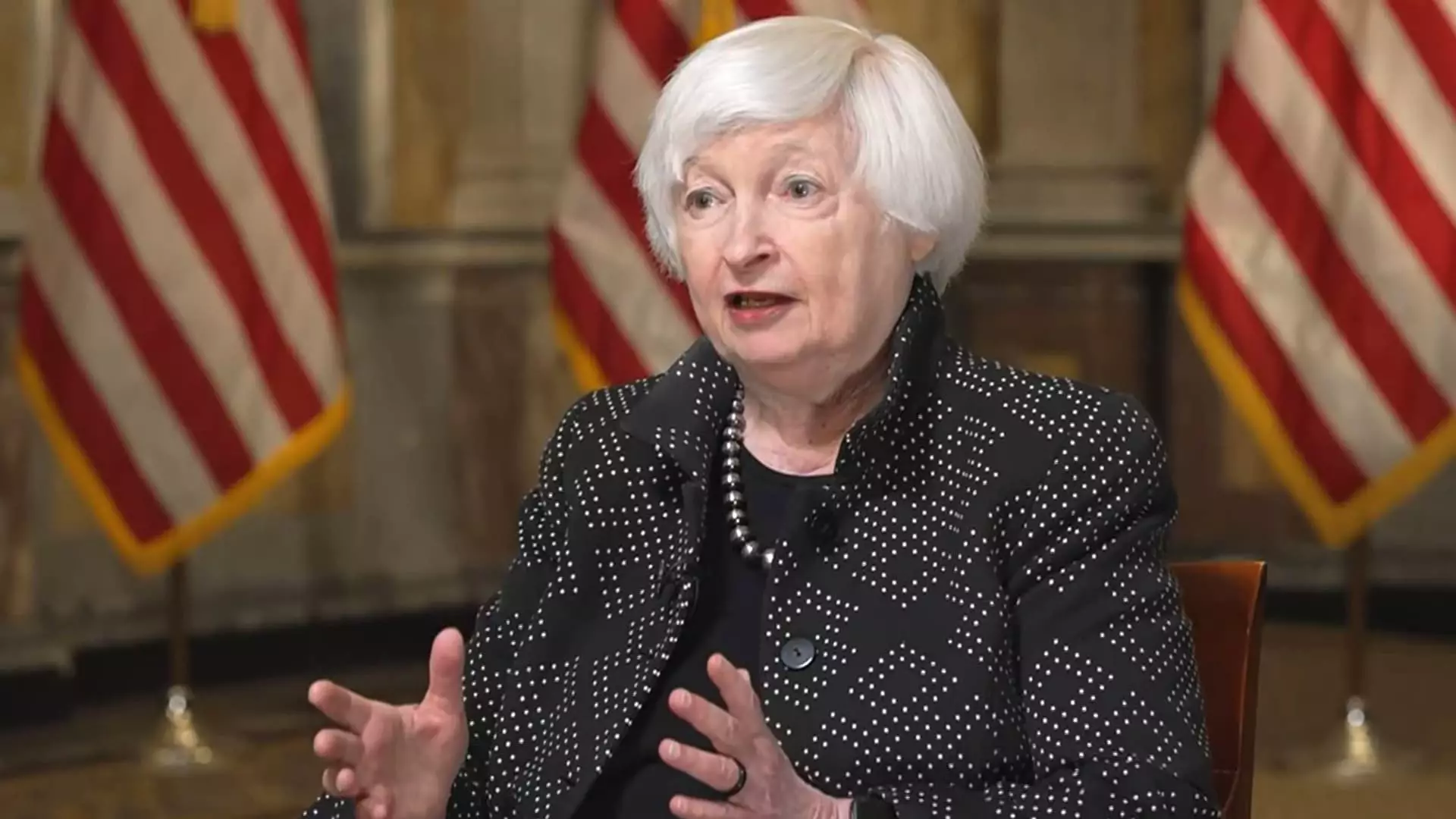In a recent exit interview, Treasury Secretary Janet Yellen shared insights into the economic policies enacted under President Joe Biden’s administration and their effects on inflation in the United States. While acknowledging that the $1.9 trillion stimulus package may have contributed to inflation “a little bit,” she emphasized that the root causes of rising prices are predominantly of a supply-side nature, exacerbated by the disruptions of the Covid-19 pandemic. Yellen pointed out significant supply chain issues that emerged as critical goods became scarce, indicating that these shortages had a pronounced impact on prices across various sectors.
This dual perspective on inflation is essential to unpack, as it elucidates a complex economic reality. Stimulus spending, while necessary to counteract the immediate economic fallout from the pandemic, interacted with existing vulnerabilities within the supply chains. Thus, Yellen’s remarks prompt an examination of the broader economic context, highlighting how external shocks like the pandemic can amplify inflationary pressures triggered by fiscal measures.
Yellen stressed that stimulus spending was vital during the crisis—characterizing the situation when Biden took office as dire, with rampant illness and high unemployment rates. She articulated the moral responsibility of the government to alleviate human suffering during unprecedented times, advocating that the decisions made were essential for economic recovery. Her reluctance to voice regrets about the relief spending signifies an acknowledgment that economic policy must sometimes prioritize immediate humanitarian needs over long-term fiscal concerns.
While this position is commendable, the challenge now lies in addressing the long-lasting consequences of such spending. How to balance short-term relief with long-term fiscal sustainability remains a pressing question for policymakers. This aspect of Yellen’s insights compels a deeper inquiry into the relationship between economic stimuli and structural economic factors that could contribute to future adversities.
Despite facing criticism regarding ballooning deficits, which soared to $1.8 trillion in the last fiscal year, Yellen defended the Biden administration’s focus on deficit reduction. She attributed rising costs of debt servicing primarily to interest rate increases, while arguing that discretionary spending is at historical lows. This perspective challenges the narrative that government spending directly correlates to fiscal irresponsibility, shifting focus towards the structural intricacies of the budgetary process and the importance of enduring safety nets, like those provided by Social Security and Medicare.
Yellen’s skepticism regarding proposals such as the one introduced by President-elect Donald Trump, which suggested substantial government spending cuts, reflects a pragmatic understanding of fiscal realities. The intricacies of government budgeting are not merely numbers on a page; they represent the fabric of societal support systems, which must be carefully weighed to avoid detrimental impacts on millions of Americans.
In stepping down from her role, Yellen expressed optimism about her successor, Scott Bessent, whose background in the hedge fund industry she described as advantageous for leading the Treasury. The transition signifies a potential shift in economic management style, as Bessent may bring fresh perspectives on mitigating inflation and managing the nation’s debt. Yellen’s departure marks a significant moment in American economic policy, as her tenure was closely intertwined with navigating the national economy through a crisis.
As both Yellen’s insights and the structural challenges she addressed are considered, it becomes apparent that the journey towards economic stabilization will require a multifaceted approach. This entails continued dialogue on spending, fiscal responsibility, and the need for carefully considered policies that not only address current ramifications but also pave the way for future resilience.

Leave a Reply